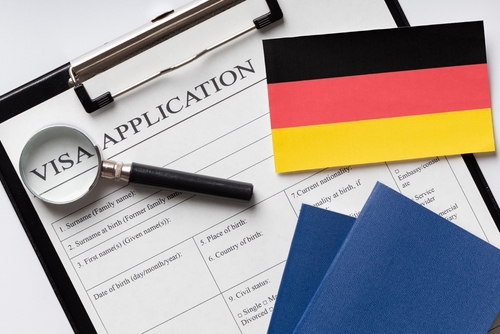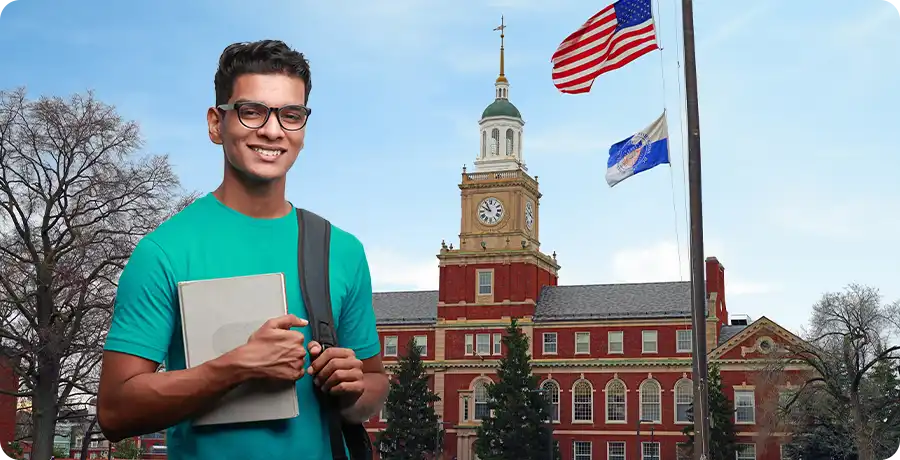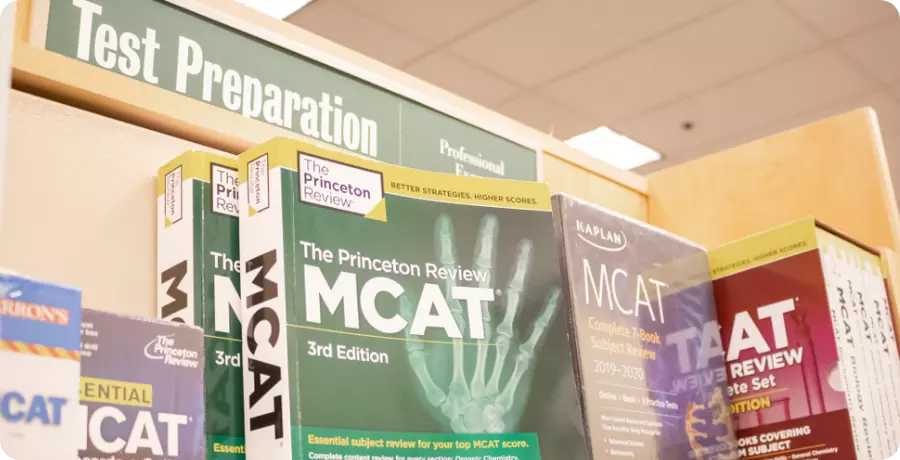For several decades, Germany has been known for being a country that is equipped with high-end manufacturing sectors and engineering verticals. Because of these reasons, the country has witnessed tremendous industrial growth over the years.
The development of the country’s industrial sector has also paved the way for a higher number of job opportunities to be available. After pursuing a professional course in Germany, many international students look for a job in the country itself. While universities in Italy for international students offer internship opportunities to their students, German universities go a step further.
There are several reasons why Germany has become a preferred option for many international students to study and look for employment opportunities. Even while studying or doing a course, students can seek casual or part-time employment opportunities.
What is a Post-Study Work Visa in Germany?
When an international student is looking for employment opportunities after completing a full-time course or program in Germany, they must study the post-study work visa guidelines. While a German Study visa enables an individual to study in Germany for a certain period, a post-study work visa allows them to work professionally after completing the course.
After receiving a post-study work visa in Germany, an individual can write an application for an extended 18-month job-seeking visa, commonly referred to as a post-study work visa. This will enable them to find work opportunities based on their skills and educational qualification. While researching Germany visa application processes, these are some things students will encounter.
During these 18 months, the individual has to try and find employment opportunities for themselves. While a student can engage only in casual employment, there are no restrictions on the number of hours an individual can work after completing their course. They can take up the kind of work they want to and work for as many hours as they wish.
Various Types of Post-Study Visas for International Students
When a student researches Germany post-study work visas, one of the first things they realize these exist in a variety of types. After analyzing multiple factors like the kind of job they want to do and the amount of time they plan to spend working in Germany, students have to choose a particular visa type for themselves.
- Residence Permit for Employment
The Residence Permit for Employment is a post-study work visa that caters to international students who have already finished their course or program in Germany and want to get the opportunity to be employed in the country.
For those interested in long-term career opportunities, this post-study visa offers great stability and flexibility. Before applying for a Residence Permit for Employment, the applicant must read up on the various aspects related to it like its duration, eligibility criteria and the application process.
The Residence Permit for Employment is usually granted to an individual for a maximum period of four years. However, the duration of the visa might vary depending on the employment contract. After procuring this permit, an individual can work in Germany, enjoy the various social; security benefits, and use all the available public services.
Any international student who has finished a full-time course or acquired a recognized degree from a German university can apply for the Residence Permit of Employment. An individual can also apply for this permit after completing some vocational training in the country. Having a work contract or a job offer will make the process of getting a permit much easier.
Somebody interested in applying for the Residence Permit for Employment must submit an application form at the Ausländerbehörde or the local immigration office. During the application process, the applicant would have to show many necessary documents, including proof of their qualifications, passport, work contract, or job offer, and a document or statement confirming their financial stability.
The Job Seeker Visa is one of the best options for foreign students who plan to live in Germany for a while after completing their course and searching for employment opportunities. This visa enables the individual to look for work opportunities and find employment there.
Getting a job seeker visa is different from applying for a Germany study visa. To apply for a job seeker visa, an individual needs to complete a full-fledged course offered by a recognized college or university in Germany. The student must also prove they have the requisite funds to live in Germany while looking for a job.
One of the things a student needs to know before applying for a job seeker visa is that its duration is six months. So, they will have only six months to look for employment opportunities in Germany. If the applicant manages to get a job in Germany in these six months, the international student must apply for a residence permit for employment or a work visa.
When an individual owns a work visa, they do not have the permission or freedom to take any work or engage in self-employment opportunities. They must remember that this visa is designed to offer them time to look for employment opportunities.
The Blue Card can be described as a form of residence permit implores professionals working in different fields to come to Germany and work here. A Blue Card offers a variety of benefits including easier pathways to family reunification and permanent residency.
To apply for a Blue Card, an individual must have a professional qualification or degree from a recognized university. A Blue Card is issued for four years. If the professional’s employment contract is for two years, then the Blue Card will be two years and three months.
Every year, many foreign nationals apply for the Blue Card. Apart from offering foreign professionals access to several employment opportunities, it also allows them to get their family to Germany and live there. Becoming a permanent resident of Germany also becomes easier.
Many people apply for the Blue Card because of the plethora of opportunities it provides them. Apart from enabling a professional to get a well-paying job in Germany, it also opens up the possibility of moving to a different job in two years. They also have complete freedom to travel across the European Union for professional reasons.
![Germany Post Study Work Visa]()
Why Should You Apply for Post-Study Work Visa in Germany
An international student’s German Student visa expires once they complete their course or program in Germany. This is one of the most basic but important things an international student will get to know when they read up on Germany visa requirements.
If foreign students plan to study in Germany after completing their course, they must apply for a post-study work visa. Ideally, an international student studying in Germany should apply for a post-study work visa sometime before their visa expires.
Once an international student gets a post-study work visa, they get 18 months to look for a job in Germany. This 18-month-long work period starts as soon as the applicant receives their final exam result. It would be a good idea for the student to start searching for work opportunities by the time they reach their final semester.
According to educational experts and those who know visa processes, applying for a post-work study visa a month before the student visa expires would be the right thing to do. When applying for a post-study work visa, doing things at the last minute wouldn’t be a good idea.
How to Apply for Post-Study Work Visa for International Students
Before applying for a post-study work visa, an international student should know each detail related to the application process. To apply for a post-study work visa in Germany, an international student must first receive an appointment or offer letter from a German company or employer.
After receiving the employment letter, the international student has to research to get an idea about the category or type of visa they have to apply for. To do this research properly, they should visit the German immigration department’s official websites. They can submit their application through these websites.
As instructed by these websites, they have to arrange for the requisite documents, statements and proofs. After this, they must schedule an appointment with the German embassy or immigration office. After this, they must pay the necessary fee for the German Employment Work visa. Once this is done, they will have to appear for an interview and wait for a response.
It is important to apply for a post-study work visa in Germany through the right channel. Some places where one can put forward an application form for the same are the German Consulate, German Embassy and the Visa Application Centre.
Timeline to Apply for Post-Study Work Visa in Germany
After a good experience with a German university as a student, an international student would also want to start their professional career on a good note. To make that happen, they would have to start preparing to apply for their post-study work visa in Germany in advance.
An international student should start the process of conducting research on the application process and visa requirements at the earliest. Following the timelines and not engaging in any last-minute rush would tremendously help smoothening the process.
A student must remember that the time processing a post-study work visa could vary based on different factors. The visa processing time depends on factors like the volume of applications the immigration authorities are dealing with at a given time and how the application forms have been filled up.









.jpg)



